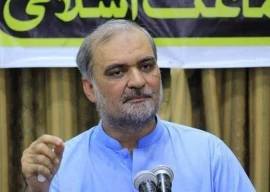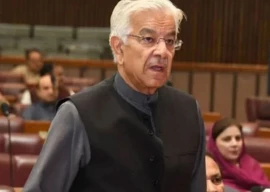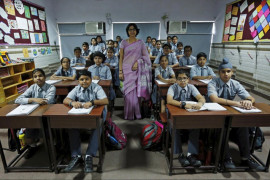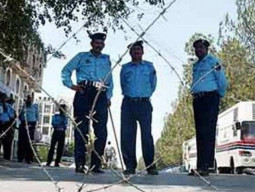
This plan was announced when the organisations held a heatstroke training session on Thursday.
SIUT hosts talent show of volunteers
The participating NGOs were Help Of Patients in Exigency by Students (HOPES) comprising students of Karachi Medical Dental Centre, Humanity Initiatives involving students of the Aga Khan University, Welfare Aid based on the students of Ziauddin Medical University, Patients Helping Hand Committee comprising students of Liaquat National Medical University, First Response Initiative comprising students of students of Dow University of Health Sciences, and Patients Helping Hand of students of Sindh Medical University.

These NGOs announced plans to establish 21 medical shelters in three different towns of Karachi - Jamshed Town, Korangi Town and Keamari Town - and another one in the National Institute of Child Health (NICH). Apart from these medical universities, students from Institute of Business Administration, Institute of Business Management, Shaheed Zulfikar Ali Bhutto Institute of Science and Technology, Iqra University and NED University will also be the part of the team.
Addressing the training session, a student of Liaquat National Medical University, Munawar Ashraf, told students from non-medical background how heatwave could be fatal. He explained that the normal temperature of the human body was 98 degree centigrade, which if soars up to 105 degree centigrade or above, could mean that the person is suffering from a heatstroke. In such a high temperature, the patient's body loses all its minerals and that is a sign of a heatstroke, he said. The patient will faint and stop sweating, he explained, adding that as the patient's body loses all its water in heatstroke, the heat starts getting stored inside the body.
When tragedy strikes, these volunteers strike back
Ashraf advised that such patients be immediately taken under some shadow. Oral Rehydration Salts (ORS) should be given to the sufferer. Further, the patient's clothes must be loosened, with their shoes and socks taken off. "Lift their legs up," he said, explaining that this would take their blood to the brain. According to him, ice should be applied on both sides of the patient's neck, armpits and between the legs.
Another medical student, Ainul Ejaz, asked the nonmedical students to consider such patients like their families. She told them that patients might not be very well off but they should take good care of them. For the female patients, she asked the male volunteers that they should deal with them ethically. Though she pointed out that they would have separate wards in their heat camps for males and females, but to lift female patients, male volunteers would be needed, who would lift female patients in the presence of female volunteers.
Published in The Express Tribune, May 28th, 2016.


























1714024018-0/ModiLara-(1)1714024018-0-270x192.webp)










COMMENTS (1)
Comments are moderated and generally will be posted if they are on-topic and not abusive.
For more information, please see our Comments FAQ